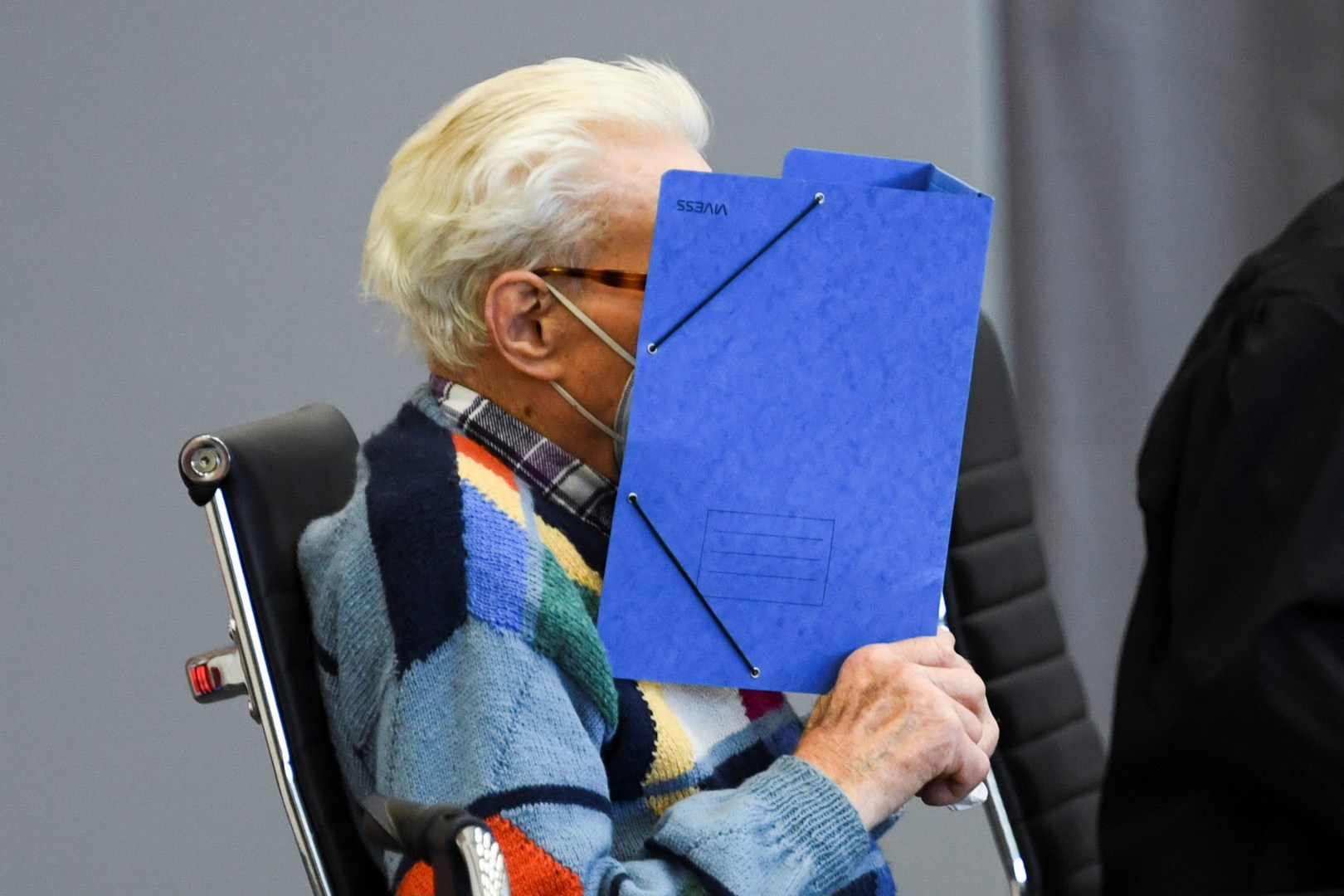A former concentration camp guard is on trial for assisting in the murder of 3,518 prisoners, 76 years after the end of World War II.
The 100-year-old Nazi SS concentration camp guard on trial for his role in the Holocaust declared his innocence in court Friday. Due to German privacy rules, he has only been identified as “Joseph S.” His trial began Thursday. The video above shows clips of the trial getting underway.
The former guard’s charges are related to his alleged work at the Sachsenhausen concentration camp near Berlin from 1942-1945. On Friday, Joseph said he didn’t know about the Sachsenhausen camp.
More than 200,000 people were held at Sachsenhausen between 1936 and 1945. The exact numbers of those killed at the concentration camp vary. Some estimate that number to be about 100,000. However, scholars suggest the number is closer to between 40,000 and 50,000. Common causes of death included starvation, disease, and exhaustion from forced labor. Others through medical experiments and systematic SS extermination operations including shootings, hangings and gassings.
During the trial, two witnesses from France and the Netherlands told the court how their fathers were killed at Sachsenhausen for having been part of the resistance against the Nazis.
“The defendant knowingly and willingly aided and abetted this at least by conscientiously performing guard duty, which was seamlessly integrated into the killing system,” prosecutor Cyrill Klement told the court.
Authorities deemed the concentration camp guard fit enough to stand trial despite his advanced age. “I found him surprisingly robust and present. He would have the strength to make an apology and he would also have the strength to remember,” International Auschwitz Committee Executive Vice President Christoph Heubner said Thursday. “Obviously, however, he does not want to muster the strength to remember, and for the survivors of the camps and for the relatives of the murdered who have come here to hear some truth spoken, this means once again a rejection, a disparagement and a confrontation with the continued silence of the SS.”
The number of hours per day the court is in session will be limited.
